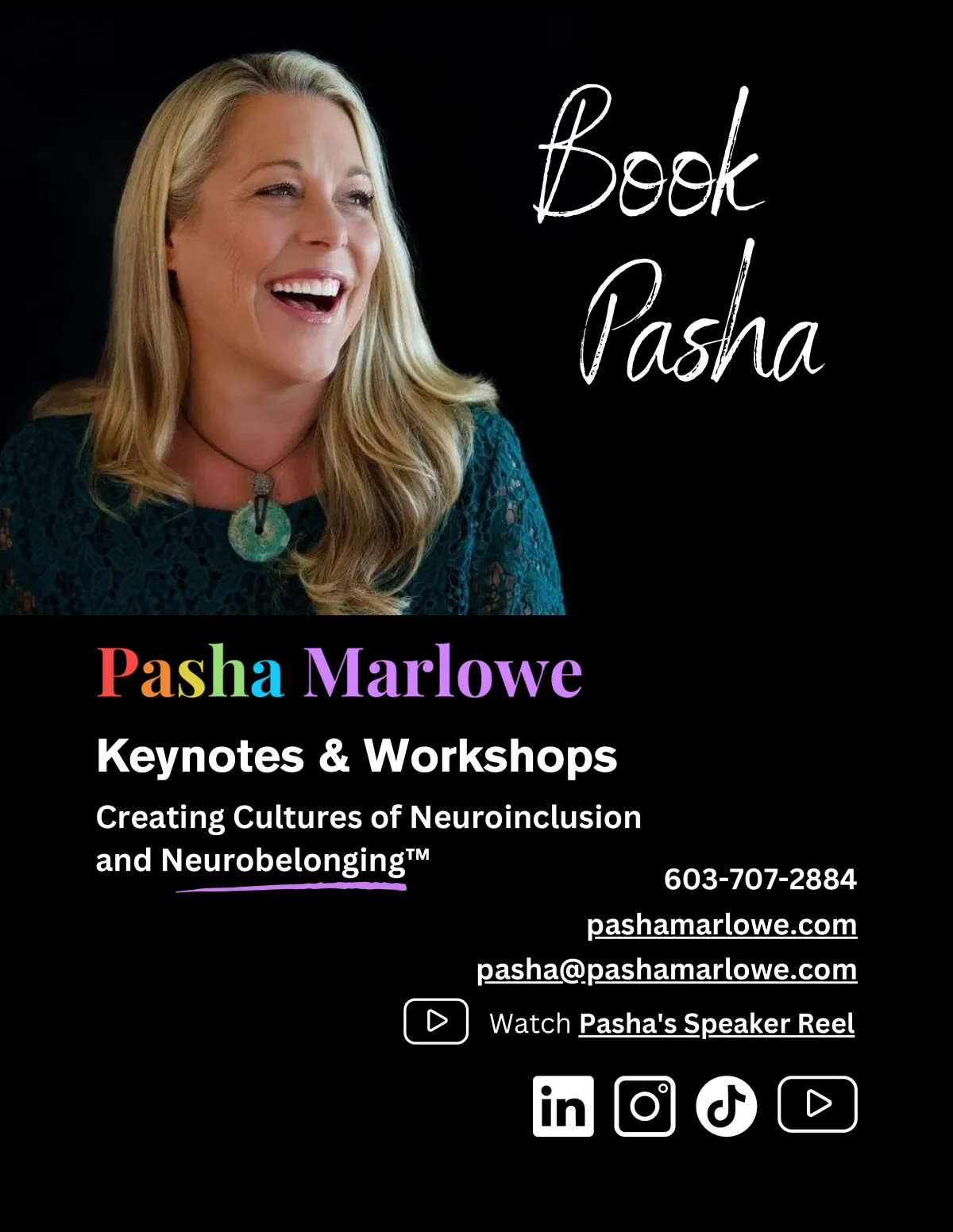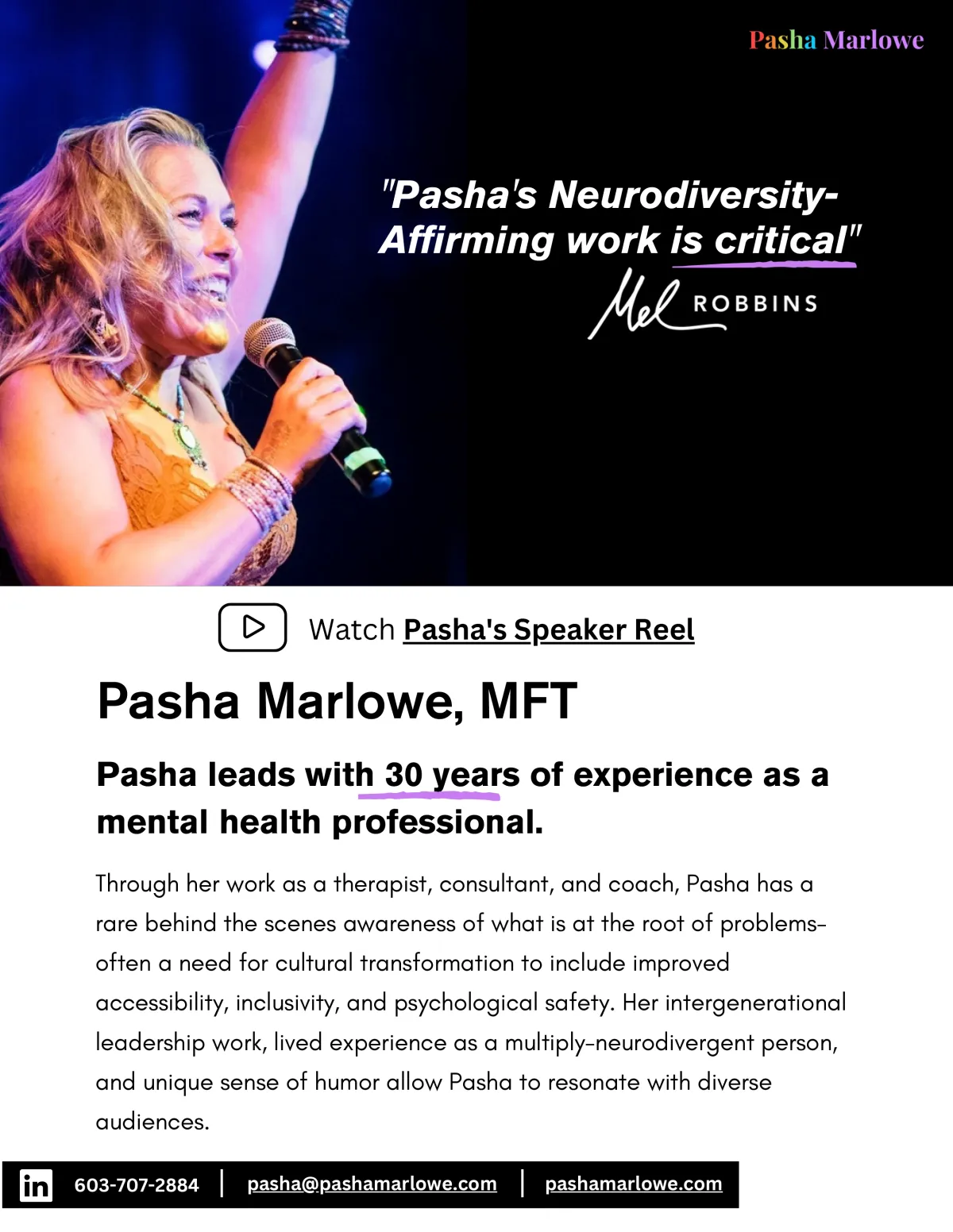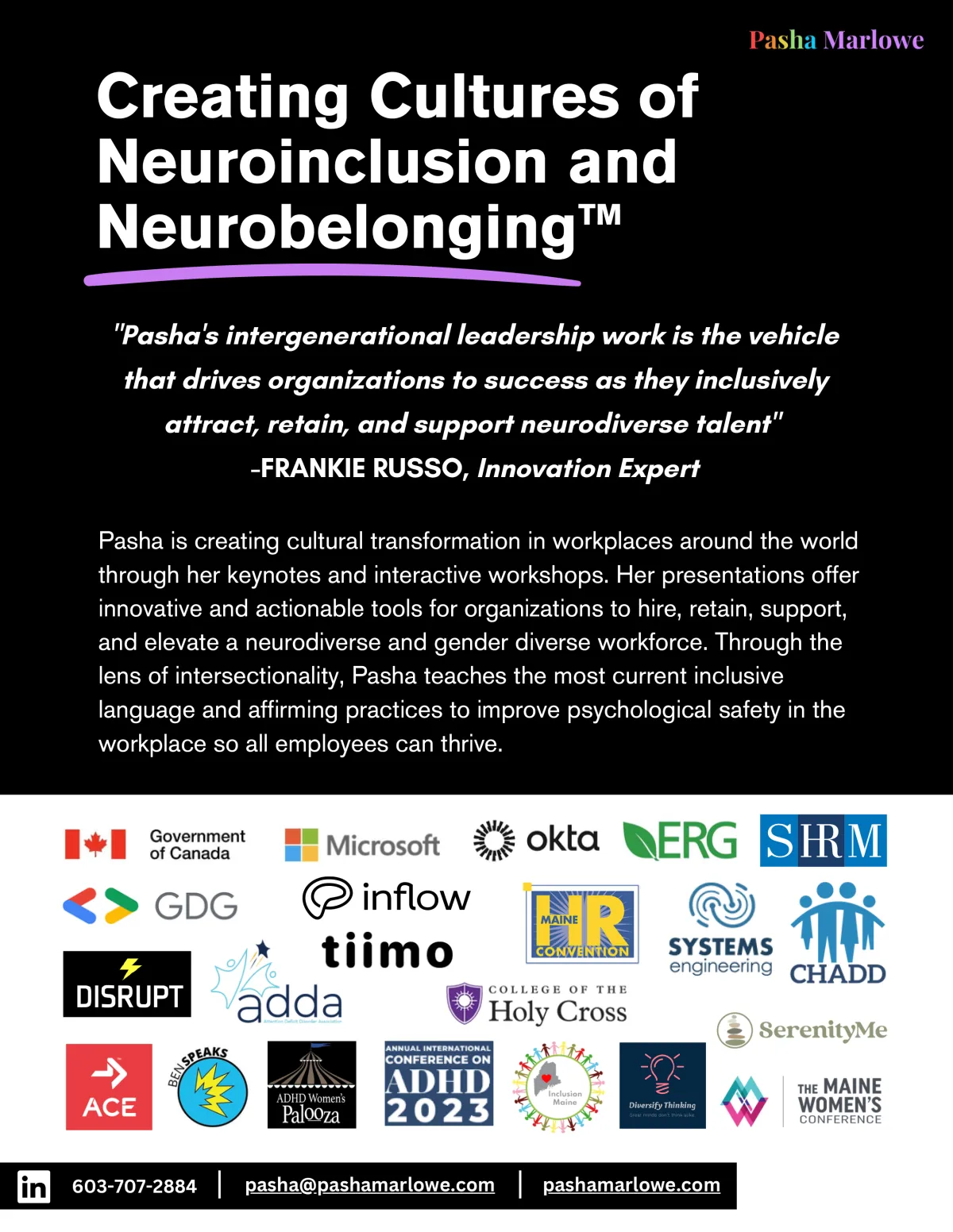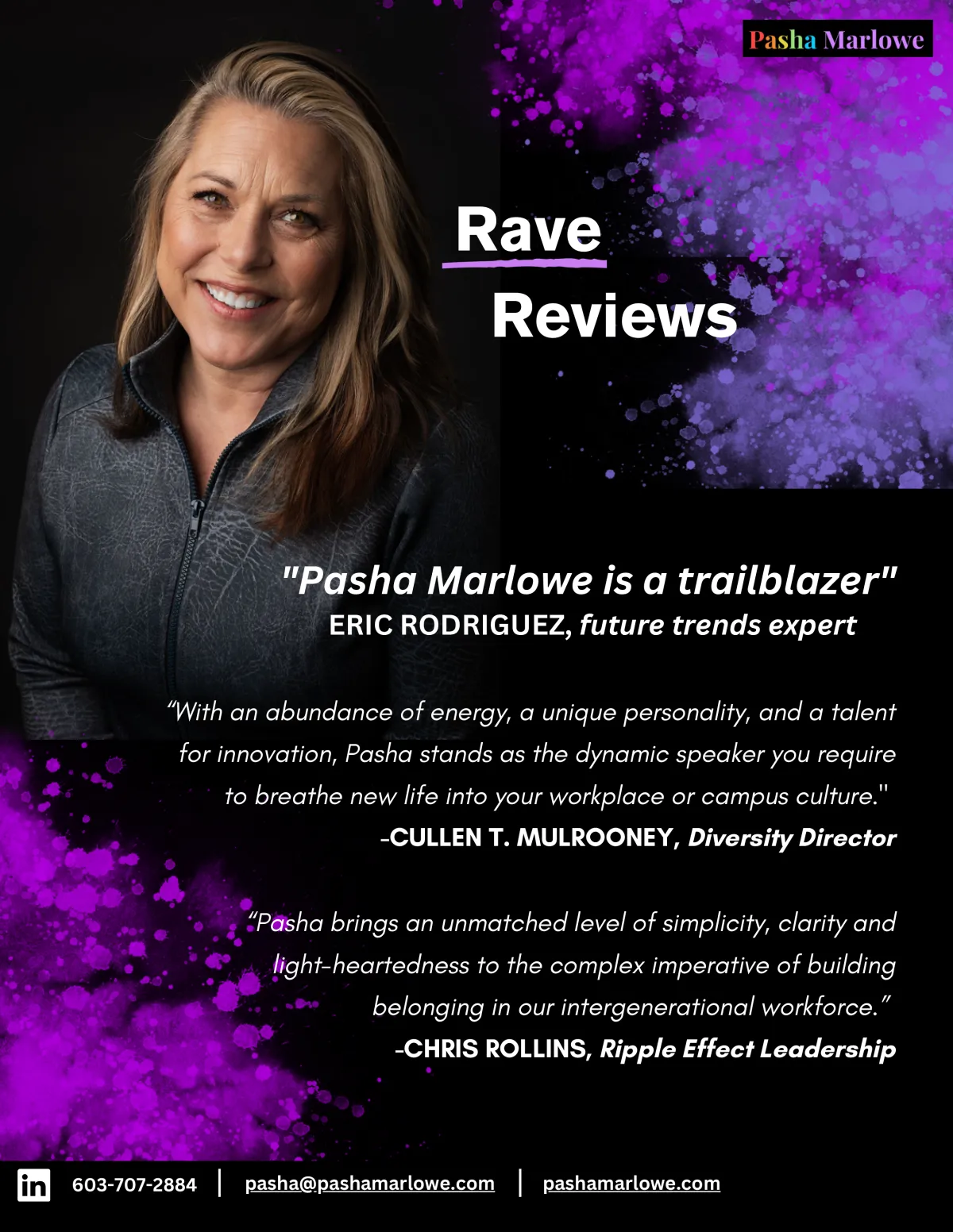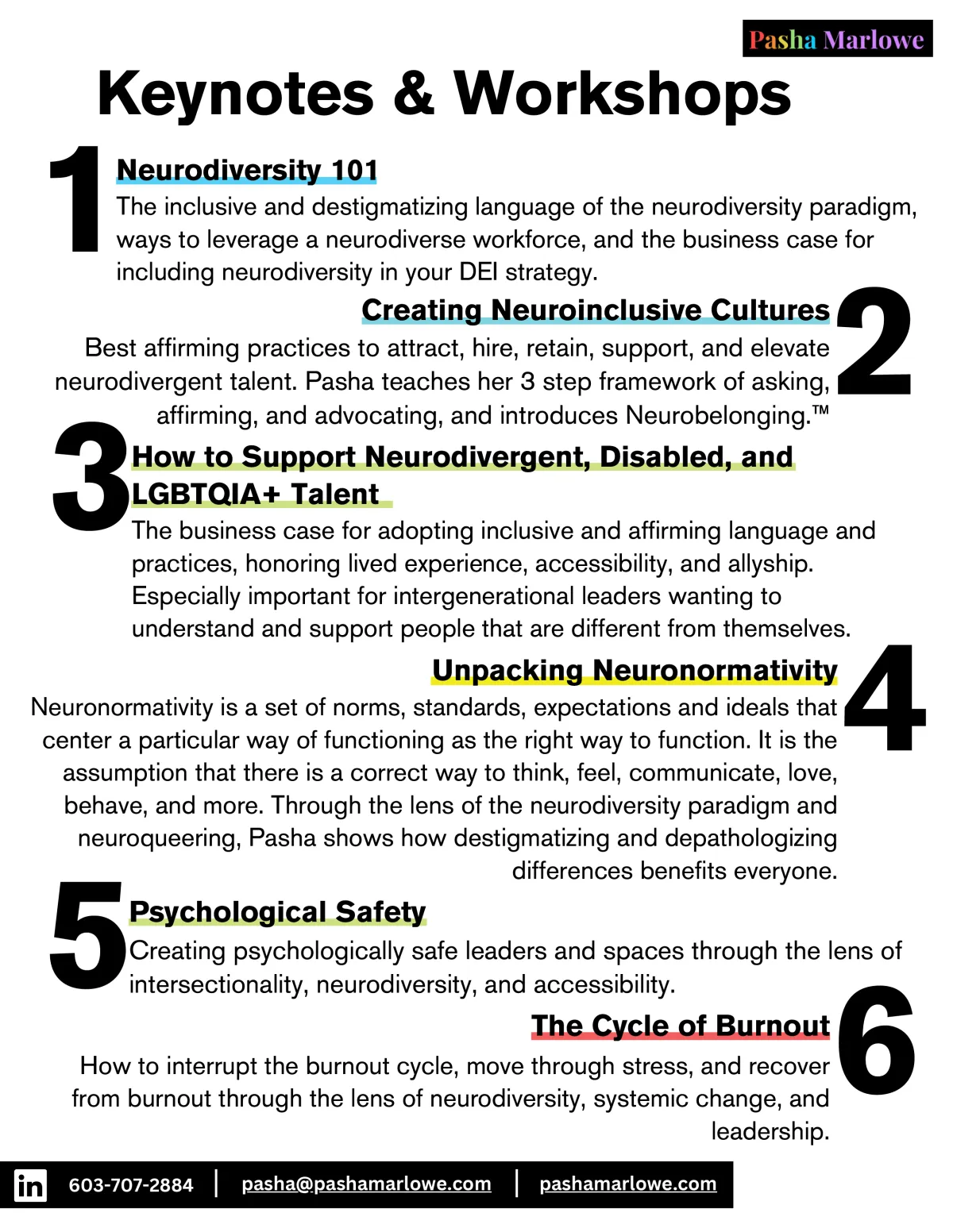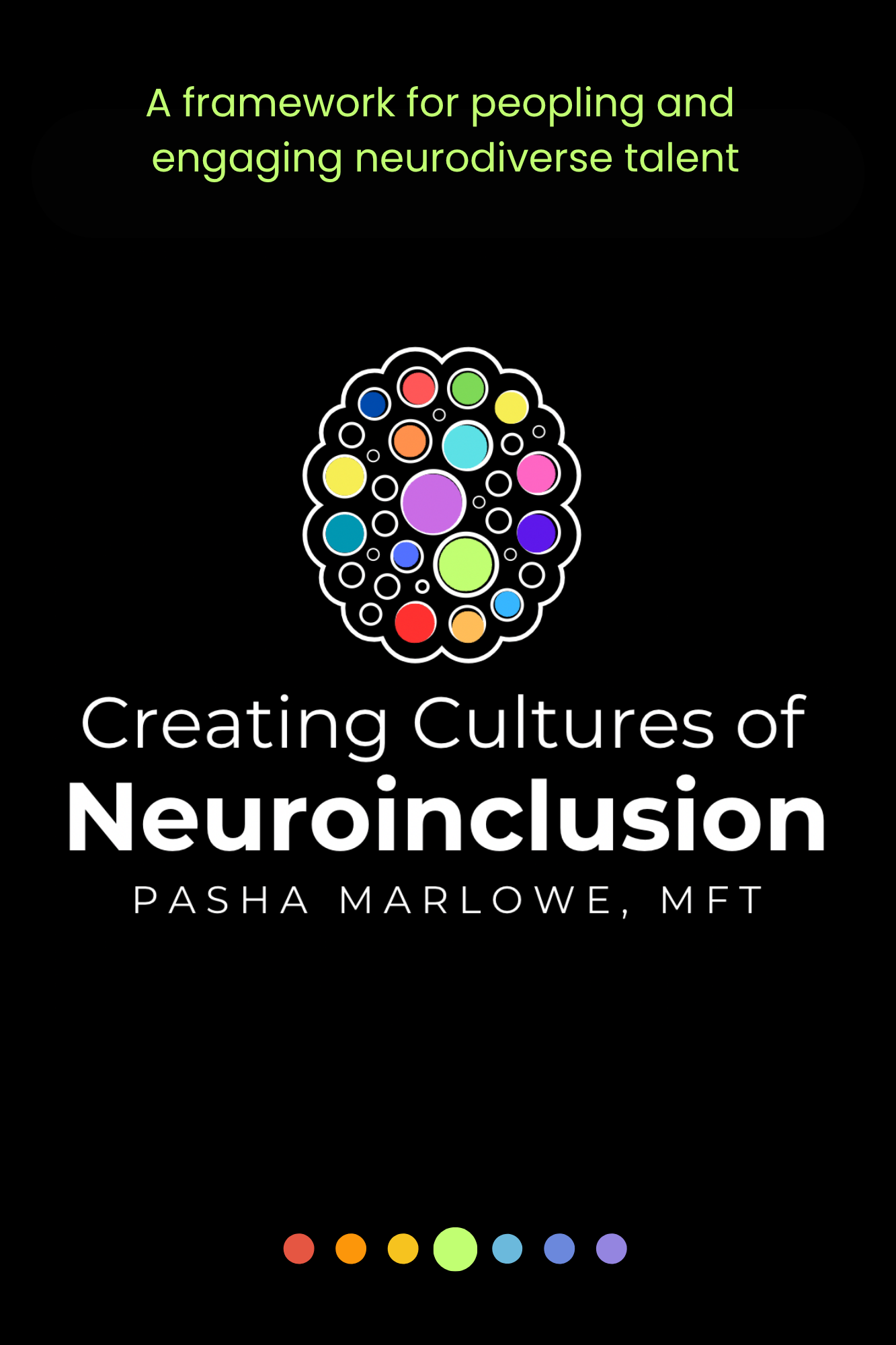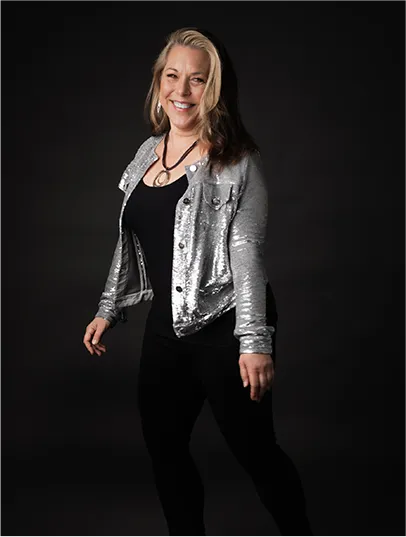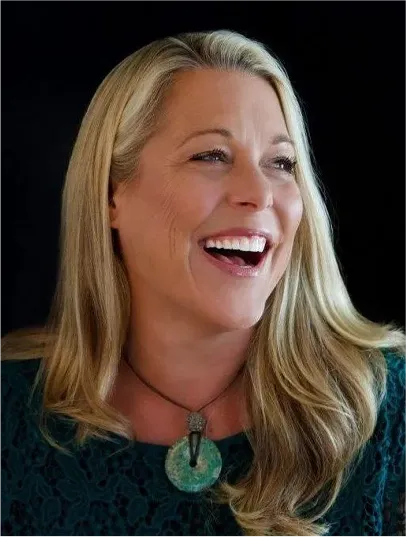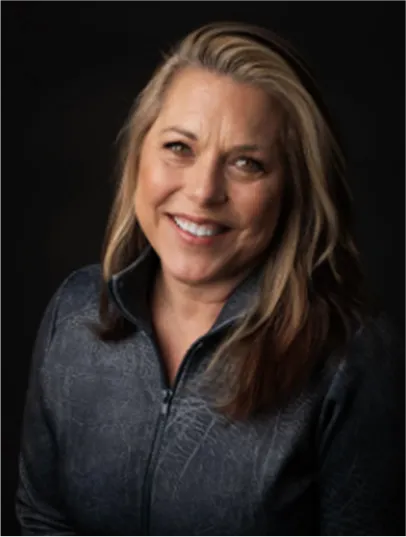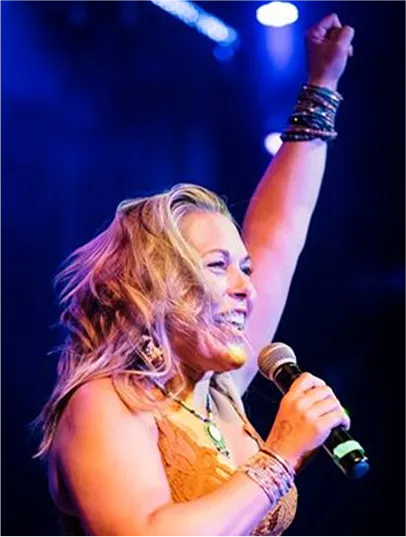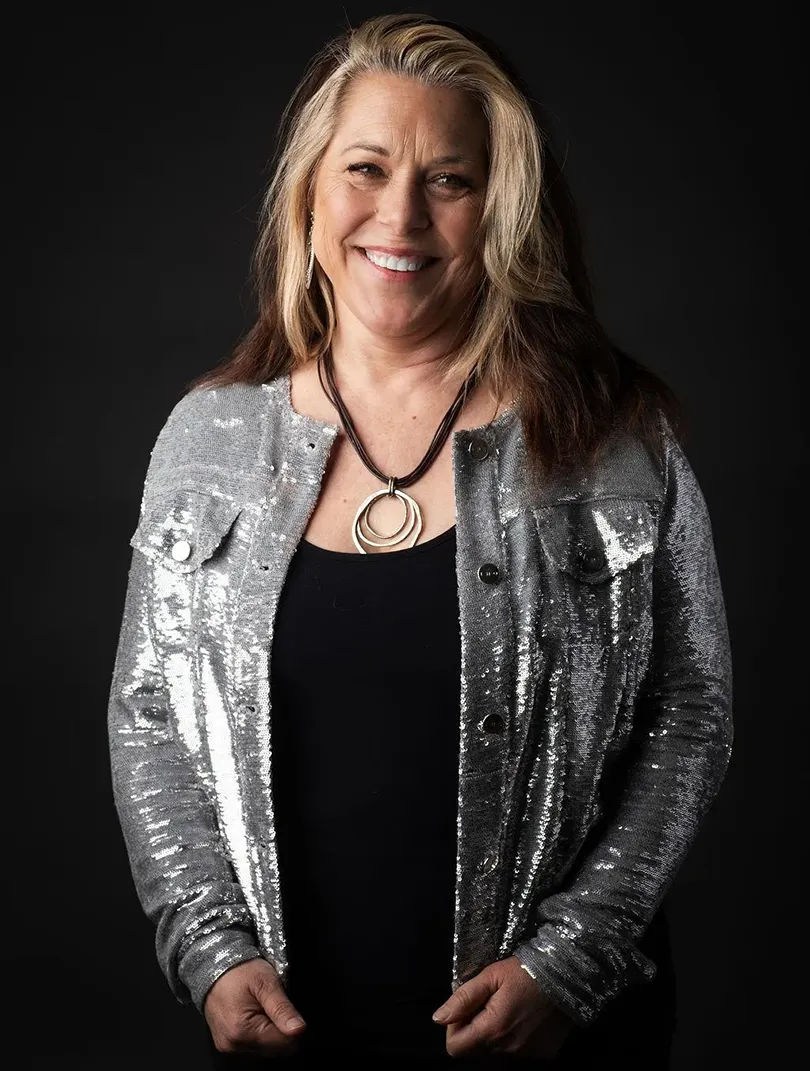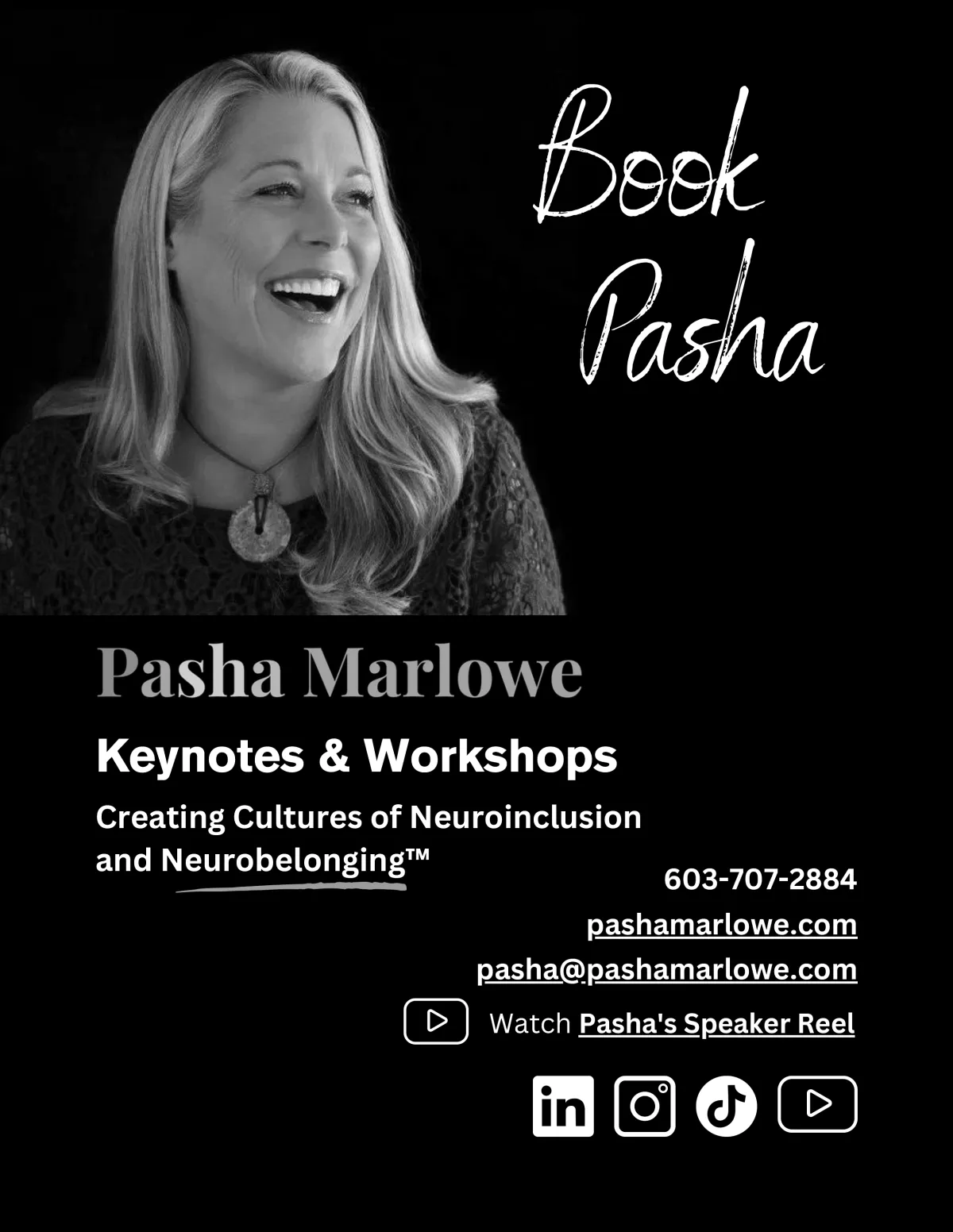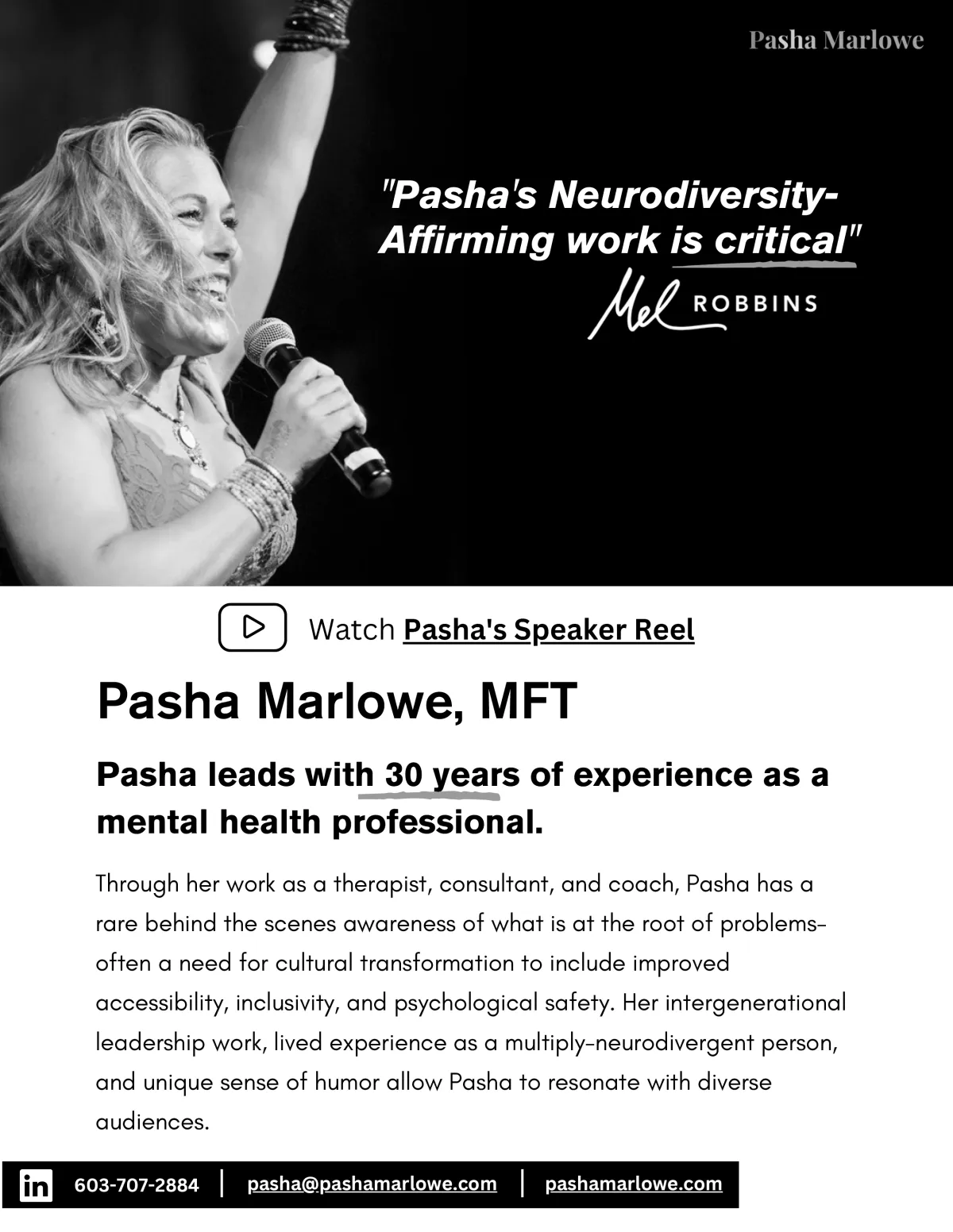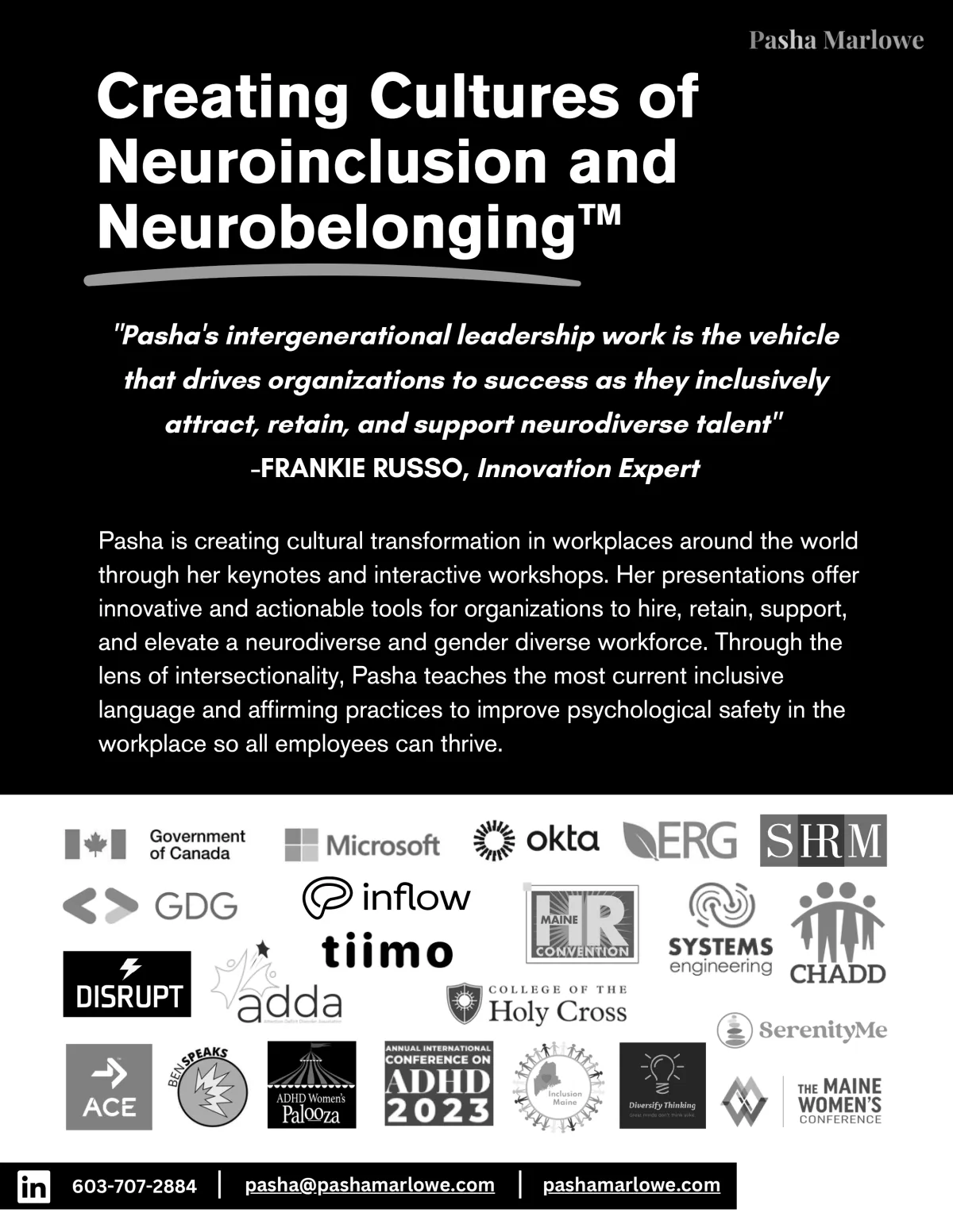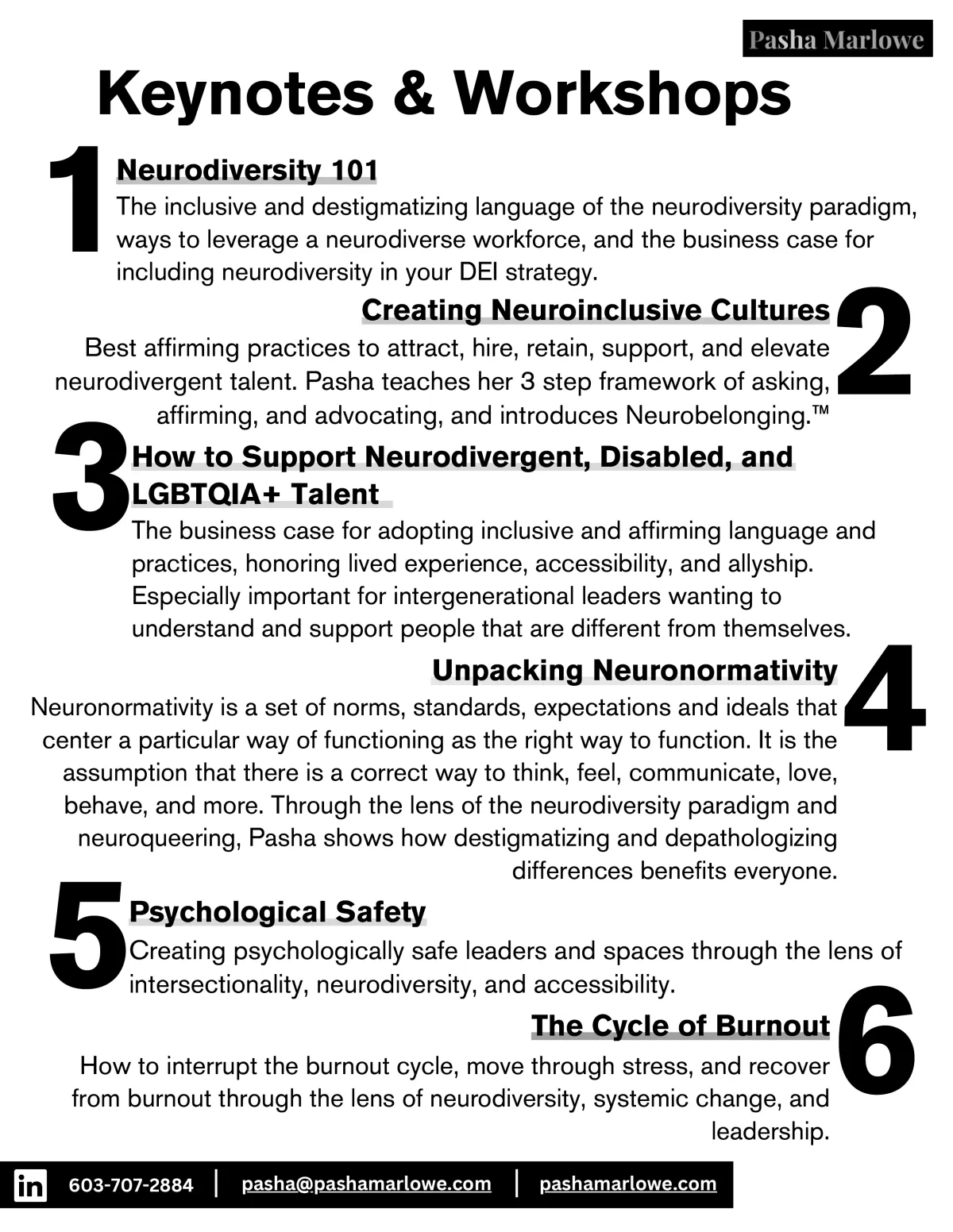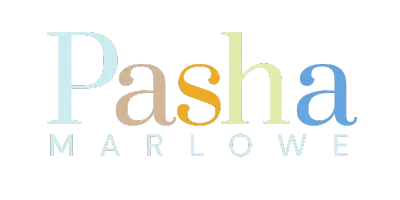
Helping leaders build stronger teams by prioritizing relationships, neuroinclusion, and respect.
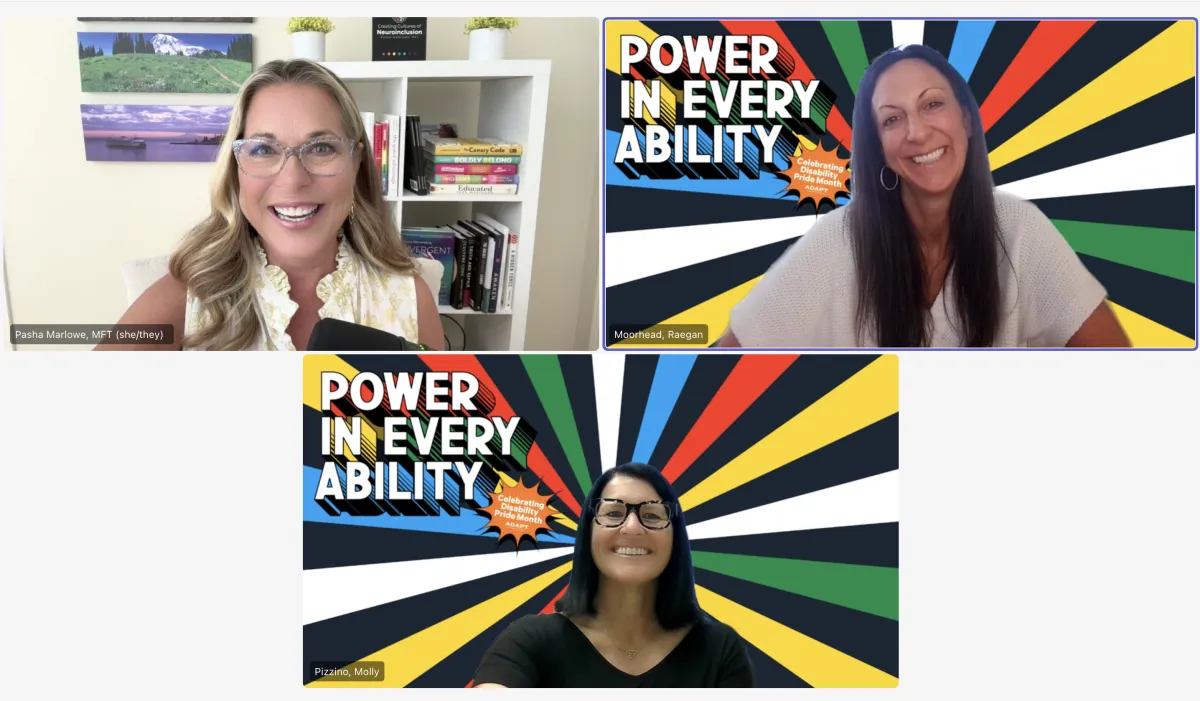
Pasha presenting her virtual neuroinclusion keynote to Victoria's Secret for Disability Pride Month
Why hire Pasha, a neurodiversity expert
and relationship therapist,
for your next event?

200+ Global Keynotes + Workshops

Author of the book and framework for Creating Cultures of Neuroinclusion

Trusted by Fortune 100 companies such as Microsoft, IBM, and Discover and beyond.
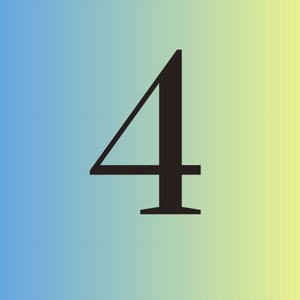
Forbes recognized neurodiversity and mental health expert
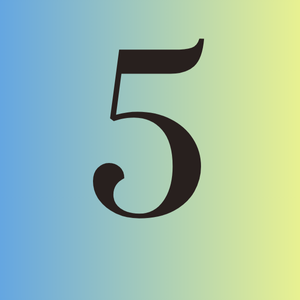
Most frequent feedback from Pasha's keynotes:
"personally and professionally impactful and mind-shifting."

Pasha leads with research, vulnerability, and large doses of humor.
Strengthen your teams by prioritizing relationships and respect.
Signature Keynote Topics
Actionable and interactive keynotes to keep the audience engaged and motivated to
create a more inclusive and relationship-based culture.
How to People: Strengthening teams by prioritizing relationships and respect
This is the perfect keynote to bring teams and people together for a more positive and affirming culture. With a focus on relationships and respect, participants will learn about building trust, navigating conflict and opposing views, psychological safety, neurodiversity, and inclusive language. The concepts of relational intelligence and interconnectedness will be explored and participants will leave empowered to be change agents at work and home.
Creating Cultures of a Neuroinclusion: A framework for supporting a neurodiverse workforce
This expansive keynote goes beyond Neurodiversity 101. Participants will learn about the scope of neurodiversity and neurodivergence and understand neurodivergent as an empowering identity people choose. We will unpack stigma, bias, and microaggressions around mental health, disability, LGBTQIA+, and different functioning styles. Participants will be introduced to the concepts of inclusive design, where access, support, and sensory needs are met, and will leave with actionable tools to create cultures of neuroinclusion in their homes and workplaces. This is a mind-shifting and paradigm shifting presentation that is both personally and professionally impactful.
Neurobelonging: Belong to yourself first
This empowering keynote challenges the narrative about belonging. Hearing “you belong” does not make you feel like you belong. You can see through performative efforts. Truth is, there will be times when people do not understand, respect, or accept you. Rather than change yourself to “fit in”, belong to yourself first. If you belong to yourself, you can claim your worth and belong anywhere. Disappoint others before disappointing yourself. Make decisions that are aligned with your truth and values. Neurobelonging is about accepting and celebrating your uniqueness and innateness.
Keynote Outlines & Takeaways
Signature Keynote:
Creating Cultures of Neuroinclusion
Neurodiversity and accessibility are hot topics right now, and it’s about time, especially as half of GenZ and a third of Millenials identify as neurodivergent and disabled. Neurodiversity and accessibility initiatives are becoming standard in DEIAB statements and strategies. 30% of Fortune 500 companies have already created Neurodiversity Hiring Programs. Given the mental health crisis in our world, more and more people over time are likely to identify both as neurodivergent and disabled (apparent or non-apparent). Organizations must be ready to meet the mental health, support, and access needs of their workforce.
Neurodiversity is the diversity of all minds, so your workforce is already neurodiverse! Some people identify as neurodivergent, meaning diverging from society’s idea of normal, and some of those same people identify as disabled. Learning how to effectively support neurodivergent and disabled talent is important if you want to attract, retain, support, and engage a neurodiverse workforce.
The key to creating cultures of neuroinclusion and accessibility is to be proactive, implement inclusive design, and use inclusive language. You do not have to wait for a problem before you create a solution. Be proactive in anticipating the access and support needs of your workforce, rather than putting people in a position where they have to disclose, explain their disability, or request accommodations. Use destigmatizing and depathologizing language, recognizing that language evolves and people should have the agency and autonomy to decide how they identify and how they define their unique strengths and challenges.
In this impactful and interactive presentation, Pasha offers the business and heart case for creating cultures of neuroinclusion and accessibility. She clearly defines terms such as neurodiversity, neurodivergent, and non-apparent disability. She offers an actionable framework for best engaging and leveraging a neurodiverse workforce, including successfully attracting, retaining, and supporting neurodivergent and disabled talent.
OBJECTIVES:
1. Participants will leave with a clear framework of effective neurodiversity-affirming language and practices to successfully attract, retain, and support neurodiverse talent (neurodivergent and neurotypical alike).
2. Participants will discuss proactive ways to create cultures of neuroinclusion and accessibility by analyzing the benefits of inclusive design, where access, sensory, and support needs are assumed and accommodated.
3. Participants will explore strategies to effectively lead and manage neurodiverse teams, including common communication challenges and mindset barriers.
Media Kit
Recent Keynotes and Workshops:
Discover-Neurodiversity expert on the "Spill the Tea" series
IBM Neurodiversity Summit-Neuroinclusion
Microsoft ERGs-Mental Health and Burnout
TBWA-Neurodiversity expert and advocate on set
Bamboo HR Summit "Neuroinclusion" (2024/2025)
United States Government "Neurodiversity 101"
US Department of Defense "Grief Support at Work"
Victoria's Secret-Neuroinclusion
Association for Women in Construction-Neuroinclusion
MELMAC Keynote-How to People
Cancer Center of Colorado "Neurodiversity at Work"
HR Maine Conference "Cultures of Neuroinclusion"
Inclusion Maine Conference "Disability Inclusion"
Diversify Thinking "Burnout Recovery Cycle"
CHADD International ADHD Conference "Neuroqueering"
Okta "Supporting Neurodivergent Talent"
Bowdoin-Creating a Neuroinclusive Campus
Tiimo "Neurodivergent Relationships" webinars
Comscore "Supporting Neuroqueer Talent"
Systems Engineering "Supporting Neurodivergent Talent"
Minnesota ERG "Neuroinclusion at Work"
ADDA's TADD TALK "Depathologizing ADHD"
International Chadd conference “Find the HA in ADHD”
Holy Cross College "Creating Neuroqueer Culture"
University of New Hampshire-Neurodiversity Panel
Maine Women’s Conference “Healing With Humor”
Inflow "Managing the ADHD mind"
Forward Together Summit "Neuroinclusive Cultures"
Maine HR Conference "Burnout"
TV, COMMERCIALS, AND FILMDiscover "Spill the Tea" (film series)
Freedom To Love (film)
In the Burbs (TV Show)
Radio Maine (interview)
Published Works
"Creating Cultures of Neuroinclusion" by Pasha Marlowe, MFT
"Neuroqueering" Autistic Magazine interview
"My Next Husband Will be a Lesbian" by Pasha Marlowe
"Many Colors of Divorce" by Pasha Marlowe Psychology Today
Copyright 2025. Pasha Marlowe. All Rights Reserved
